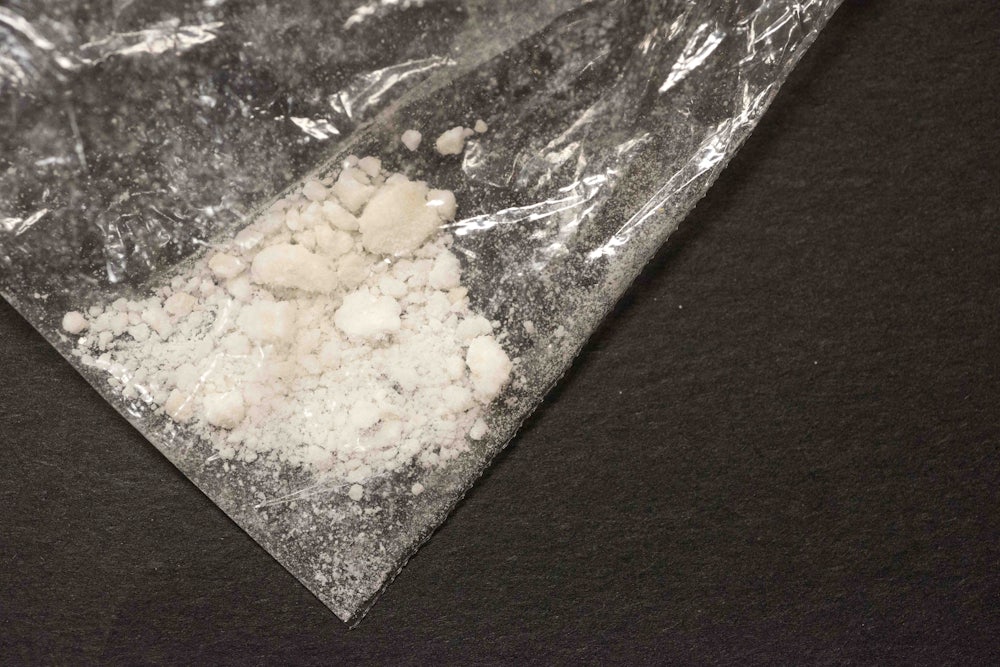Let’s start with the truth. The migrants who arrive at our southern border do not smuggle fentanyl into the United States. The evidence is clear on this point, in large part thanks to reports straight from the U.S. Border Patrol.
But Fox News, Donald Trump, and the rest of the GOP misinformation complex have besieged our recent news cycles with a daily barrage of insinuations and lies—a distortion field that the mainstream media has only occasionally and feebly challenged. The inability of the fourth estate to capably penetrate the frustratingly obvious dishonesty of these fentanyl fearmongers is a massive and comprehensive example of media malpractice—more decisive proof that traditional reporting techniques are simply leaving the American public in the dark as the 2024 election campaign season shudders forward.
One of the latest examples of this mendacity arrived in the form of House Speaker Mike Johnson’s January 31 speech endorsing the impeachment of Homeland Security Secretary Alejandro Mayorkas. Johnson, characteristically, used the false fentanyl charge as a major item in his indictment of the Biden administration’s border policy. “Just last week, a precious 2-year-old was found dead in her house with fentanyl in her system,” he said. “Moms and dads and brothers and grandmothers—all of us are losing loved ones to a drug that is being smuggled across the border in droves.”
The false charge plays right into Donald Trump’s increasingly Hitler-like assertions that migrants are “poisoning the blood” of Americans.
The fentanyl crisis is, in fact, very real. Last year, more than 112,000 Americans died from overdoses—the largest number of annual drug fatalities in our history. If migrants were truly smuggling these killer drugs into the country, it would indeed be a genuine scandal, and every American, regardless of their political persuasion, would be well within their rights to demand an immediate intervention.
But despite what you’ve been told, it is not the migrants who are carrying the deadly poison over the border. Border Patrol reports are absolutely clear in this regard: The overwhelming majority of drug arrests are of U.S. citizens, who are crossing at ports of entry in vehicles. To come into the United States at a port of entry, you need to possess official documents; you aren’t swimming across the Rio Grande River.
Even the minority of smugglers who are not Americans are most likely citizens of Mexico, who are also driving across the bridges, expecting to sail through the same entry points as every law-abiding citizen. Arturo Dominguez is based in Texas and reports on the border crisis for Capitol Press. He explains: “The fentanyl is hidden in 18-wheeler tractor-trailers, or in cars. It’s not on a migrant’s back; it’s not hidden in a little migrant kid’s backpack.”
Aimée Santillán—a policy analyst at the Hope Border Institute in El Paso, Texas, an organization that “brings Catholic social teaching” to bear on the border—concurs. She struggled to recall a single case of a migrant caught smuggling fentanyl. “There are a great number of people here in El Paso going back and forth to Mexico,” she says. “We know that it is U.S. citizens who are smuggling. It’s easier for them to get through the checkpoints.”
Official statistics confirm this truth. In 2022, 88 percent of the fentanyl smugglers who were caught were U.S. citizens. The previous year, the Border Patrol encountered 1.8 million migrants who were crossing “illegally.” Of them, just 279 were carrying fentanyl. That amounts to 0.02 percent.
These cold, hard facts rarely appear in the mainstream American media’s coverage of the crisis. At best, a press report might include a single sentence discrediting the allegation that migrants are chiefly responsible for the fentanyl flow, buried low in the article. Sometimes readers don’t even receive this bare minimum of effort: On January 30, for instance, a long New York Times analysis of “how Biden failed on the border” did not include a single reference to the GOP’s signature lie.
This was an astonishing oversight. As it stands, what is arguably Biden’s biggest “failure” at the border is that he has not forcefully and repeatedly ripped the coverage promulgating this big lie about the migrants as smugglers to shreds. As a result, large portions of the American public are understandably fearful and angry as the press dances to the beat of right-wing liars’ drums, with nary an interruption from those with the facts on their side.
Jenn Budd is a former Border Patrol agent who resigned from the force and became an outspoken advocate for immigrant rights; her 2022 memoir, Against the Wall, is a powerful view from inside the system. She also emphasizes that fentanyl is mainly smuggled into the country in trucks and cars. “Everyone who works at the border knows that they cannot inspect shipping cargo containers at the same rate as they do pedestrians coming over,” she said. “Less than 5 percent of those containers can be inspected, and that’s where most of the fentanyl is concealed.”*
Stopping fentanyl is extraordinarily difficult. In the month of July 2023 alone, an estimated 16.5 million pedestrians, passenger vehicles, and cargo trucks crossed the southern border. Fentanyl is an extraordinarily dense substance. A recent Financial Times report cited a Rand Corporation study that showed that “all the fentanyl needed to supply the U.S. for one year weighs the equivalent of 5 tons,” and could fit into a single truck.
Budd explains another related truth that has also gone largely unmentioned by those reporting on the various aspects of the so-called “border crisis”: Nearly all the incoming migrants who endeavor to cross the border walk directly up to U.S. officials and turn themselves in, so they can apply for asylum. Suffice it to say, this is not a “best practice” for anyone who wants to successfully hoof fentanyl over the border on behalf of a drug cartel.
Fox News regularly includes alarmist reports about “gotaways”—migrants who evade being taken into custody. But Budd says there is another expression that the Border Patrol also uses: “give-ups,” or people who make no effort to hide from authorities on this side of the borderline. She estimates that these days between 85 and 90 percent of the people who cross the border are “give-ups.” It defies logic that families who actually want to be taken into custody, who know they will be questioned and searched, and who ultimately hope a sympathetic judge will grant them asylum, would put all of that at risk by smuggling drugs right under the noses of the authorities they hope to win over.
Budd gets passionate when she describes the central truth: “The fact is that 99.9 percent of the people crossing our southern border are not criminals. They are legitimately seeking safety or work. They don’t carry drugs in their backpacks because they aren’t drug smugglers.”
What should the non-Fox News media do differently? First, their reporters should go to where the action is, rather than just sit in the offices passively absorbing meretricious talking points. That means hustling down to Texas—to Eagle Pass and El Paso. There is currently a perilous asymmetry between those who will tell the straight story and those propping up a distorting lens: Weeks will pass between firsthand border reports on, say, MSNBC; meanwhile Fox News reporter “Border Bill” Melugin and his colleagues seem to be stationed there permanently, bombarding their viewers with daily doses of manipulative propaganda.
But more coverage alone isn’t enough. The mainstream media is terribly handicapped by its supposed devotion to balance and “objectivity.” When one major political party, its presidential candidate, and its allies in infotainment are lying at top volume, the traditional “on the one hand, on the other hand” two-step is no longer an adequate way to confront the lies and cut through them, a fact that is as true on the border issue as it is on many others. The non-Fox News media should regularly and directly take on the distortions of Trump and his fellow Republicans, report them, and contradict them with facts.
There is some recent precedent. During Covid, when the right-wing media and its allies tried to discredit the new vaccines, the mainstream challenged the lies head-on—interviews with scientists, physicians, and public health specialists filled our airwaves and newspapers. When the far-right wing fever swamps started promoting the idea that the animal de-wormer ivermectin could treat Covid, CNN and The New York Times didn’t ignore the reality; they reported the false information and repeatedly discredited it, never allowing such fallacious claims to find a purchase on their platforms.
There is absolutely room to challenge the current U.S. border policy. There are flaws to be exposed, people in power to be faulted for their failings. Everyone is entitled to demand good-faith changes to the immigration system—even drastic ones. And the media should make a home for coverage of all of this. But no one has the right to tell vicious and dangerous untruths about hundreds of thousands of human beings. Blaming migrants for the 112,000 fentanyl deaths is nothing short of a blood libel.
* This article originally misquoted Budd.










